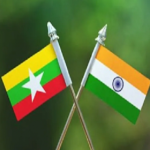Key takeaways:
– India’s recognition of Myanmar’s government cannot be compared with the recognition of the Taliban in Afghanistan. While there was a change in government in Myanmar, the previous Afghan government ceased to exist.
– India has been following a calibrated middle path position in Myanmar. The West condemns the new military government while China and Russia have been proactively conducting transactions with the leadership.
– India’s dual-track policy has been to support democratic rule while maintaining relations with those who currently wield power.
– Historical factors greatly affected India’s outlook on Myanmar. Stability and security of Myanmar is crucial for North-east India, and hence, India.
– New Delhi fully supports ASEAN’s five-point consensus formula and its lead in promoting reconciliation in Myanmar.
– While India cannot handle a large influx of refugees, it offers hospitality to asylum seekers in some cases and not through a clear-cut policy.
– India’s infrastructure projects such as the Trilateral Highway and the Kaladan project were affected by the coup. Some Chinese projects were also damaged and burnt down.
– China has maintained a good relationship with whoever is in power at Naypyitaw. With growing Chinese influence, India must provide a balance while providing Myanmar with an alternative.
– Myanmar is banking on international help to stabilise itself. India and Japan can engage and inject realism into the thinking of the U.S. and Australia while supporting Indonesia, Malaysia, Singapore and Thailand for their mediatory endeavours.
This interview was first published in The Wire. You can read the full transcript here.
Rajiv Bhatia is Distinguished Fellow, Gateway House and a former Ambassador to Myanmar.


